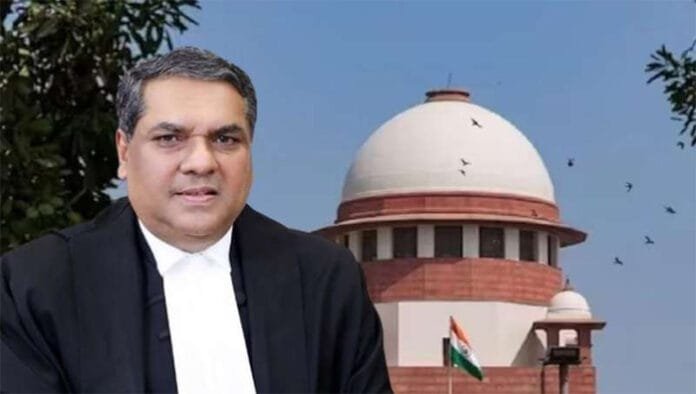Interim Order Maintains Current Waqf Property Status Until Next Hearing
On April 17, 2025, the Supreme Court of India declined to impose an interim stay on the recently enacted Waqf (Amendment) Act, 2025, despite multiple petitions challenging its constitutional validity. However, the Court issued a directive ensuring that the current status of all Waqf properties, whether officially registered or recognized through customary usage, remains unchanged until the next hearing scheduled for May 5, 2025.
Legal Representation and Court Proceedings
The petitions were presented by Senior Advocate Rajeev Dhavan, representing Maulana Mahmood Madani, President of Jamiat Ulema-e-Hind, with Advocate-on-Record Mansoor Ali Khan assisting. The Solicitor General of India, Tushar Mehta, appearing for the Union Government, requested a seven-day period to submit preliminary responses and necessary documentation, which the Court granted.
Court’s Clarification on Scope of Hearing
Chief Justice Sanjiv Khanna clarified that, adhering to judicial discipline, the Court would consider only five petitions in this matter. The Court also indicated that future proceedings would be titled under the “Reply Waqf Amendment Act,” distinguishing them from challenges to the Waqf Acts of 1995 and 2013.
Key Provisions of the Waqf (Amendment) Act, 2025
The Waqf (Amendment) Act, 2025, enacted on April 5, 2025, introduces significant changes to the management and administration of Waqf properties in India. Notable provisions include:
Renaming the Act: The original Waqf Act, 1995, is now titled the United Waqf Management, Empowerment, Efficiency and Development Act, 1995 (UWMEED Act 1995) .
Inclusion of Non-Muslim Members: The amendment mandates the inclusion of non-Muslim members in Waqf Boards and the Central Waqf Council, aiming to promote inclusivity and transparency.
Gender Representation: It requires the representation of at least two Muslim women on the Central Waqf Council and State Waqf Boards, promoting gender equality.
Central Government Oversight: The Act empowers the Central Government to formulate rules for Waqf registration, auditing, and accounts, enhancing transparency and accountability.
Appeal Mechanism: Decisions made by Waqf tribunals can now be challenged in the High Court within 90 days, providing an additional layer of judicial oversight.
Challenges and Concerns Raised
Several political parties and organizations have filed petitions challenging the constitutional validity of the amendment:
Indian Union Muslim League (IUML): Filed a writ petition under Article 32, alleging that the Act violates Articles 14, 15, 25, and 26 of the Constitution by imposing arbitrary restrictions and enhancing state control over Islamic religious endowments .
Dravida Munnetra Kazhagam (DMK): Filed a separate petition, asserting that the amendment infringes upon the fundamental rights of Muslims in Tamil Nadu and across India .
All India Majlis-e-Ittehadul Muslimeen (AIMIM): Party chief Asaduddin Owaisi and Congress MP Mohammad Jawed have also moved the Supreme Court, contending that the legislation imposes arbitrary conditions on the creation of Waqfs and undermines the religious autonomy of the Muslim community .
Specific Objections Highlighted in Petitions
The petitions raise several specific concerns regarding the amendment:
Exclusion of New Converts: The Act restricts the creation of Waqfs to individuals who have practiced Islam for at least five years, thereby excluding new converts and infringing upon religious freedoms.
Abolition of Oral Waqfs: The requirement for written deeds effectively abolishes the practice of oral Waqfs, which has been a longstanding tradition in Islamic law.
Removal of ‘Waqf by User’: The amendment eliminates the concept of ‘Waqf by User,’ disregarding properties that have been used for religious purposes over extended periods without formal registration.
Empowerment of District Collectors: The Act grants district collectors the authority to determine the nature of Waqf properties, raising concerns about potential misuse and lack of expertise in Islamic jurisprudence.
Inclusion of Non-Muslim Members: Mandating non-Muslim members in Waqf Boards is viewed as an infringement on the Muslim community’s right to manage its religious affairs independently.
Government’s Justification
The Union Government defends the amendment, stating that it aims to enhance transparency, curb mismanagement, and ensure better regulation of Waqf properties. The inclusion of diverse members in Waqf Boards is presented as a step towards inclusivity and efficient governance.
Next Steps and Anticipated Developments
The Supreme Court’s decision to maintain the status quo on Waqf properties until the next hearing provides temporary relief to concerned parties. The upcoming hearing on May 5, 2025, is expected to delve deeper into the constitutional challenges posed by the amendment.















